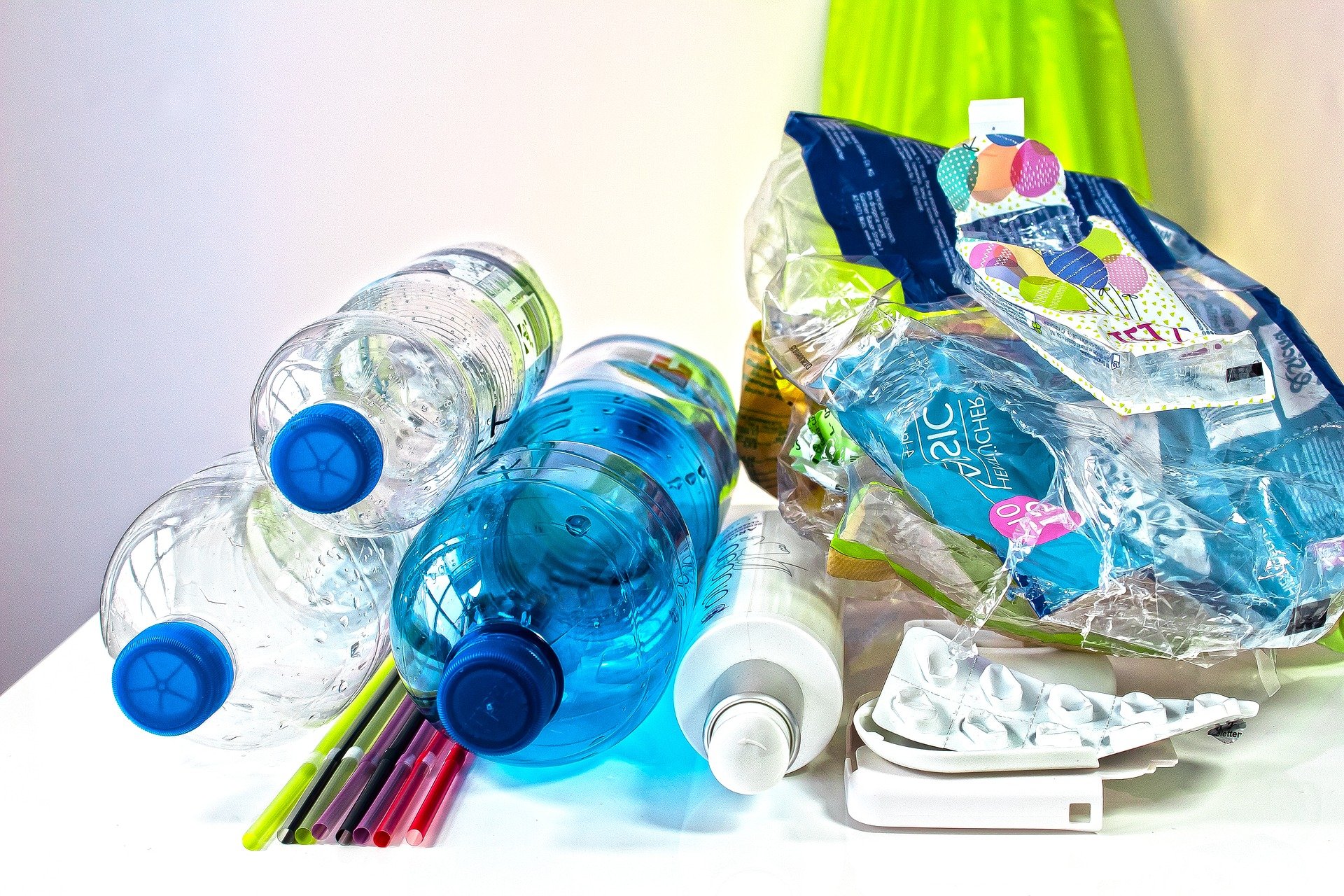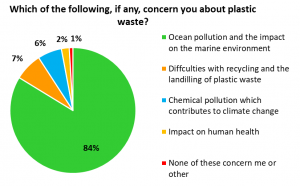
September 8, 2021, by sustainablenottingham
Should we care about plastics?
At the University of Nottingham, a group of four PhD CDT (Centre for Doctoral Training) students are working on projects related to the chemical and biological recycling of plastic. Our individual projects explore a range of technologies and an array of different types of plastic, but we all have the same goal; to recycle plastic into its original chemical components.
To better understand this goal, in February 2021 the four of us created a public awareness and behaviours survey related to plastic waste; ‘Should we care about plastics?’
The aim of the survey was to learn about the public’s view on plastic waste. WRAP produce a Recycling Tracker Report every year. Their surveys are well established and well structured, so they were used as a template for our survey.
Our “should we care about plastics” survey covered a range of topics such as; concerns, responsibility, personal agency, current and future behaviours and more. This allowed us to gain an overall picture of the public’s views towards plastic waste. We distributed it among our personal spheres, the University CDT sphere, through our academic supervisors and within the University. Due to the similarities in our personal characteristics and the method of distribution, the demographic was skewed in some areas. However, this has enabled us to make some conclusions from specific groups such as young people and students.
39% of our respondents were aged 0-24years, and 62% of these young respondents were students. The second largest age group was 25–40-year-olds (24%), and we have observed some interesting shifts in behaviours and attitudes between these age groups.
The survey ran for 3 months and gained nearly 650 respondents. We have spent some time analysing the results since the survey closed and have reached some key findings.
Plastic waste concerns, who is responsible?

Reasons for concern about plastic waste
Ocean pollution was found to be the biggest plastic waste concern across all age groups. This outcome could be related to the huge popularity of Blue Planet II in 2017. This documentary series attracted more than 14 million viewers and had a strong message regarding plastic waste and marine pollution.
In line with other surveys, our respondents felt that companies using plastics and the government were responsible for the plastic waste problem.
The respondents also felt overuse of plastic as a material has caused the problem. This outcome could be related to the finding of increased personal responsibility.
A large majority (89%) of our respondents felt they could help address the plastic waste problem, such as by buying less plastic packaging and recycling all household waste possible.
Current and future behaviours

Plastic recycling behaviours in 0-24 year olds and 25-40 year olds
In general, an increase in plastic waste recycling behaviours was found. However, there are some key differences between age groups.
0-24 year olds are significantly less likely to recycle plastic waste via council collection (63% decrease on average across the five categories).

Plastic reducing behaviours in 0-24 year olds and 25-40 year olds
This could be related to living arrangements as most 0-24 year olds live with their parents or in student accommodation. Therefore, they may have less control of their recycling system.
However, it was encouraging to find that this age group did have a strong interest in adopting plastic reducing behaviours.
For four categories, 0-24 year olds were more likely to adopt these behaviours than the 25-40 respondents.
Therefore, the younger respondents to our survey may not be recycling their plastic waste but they do appear to have a motivated attitude to change to plastic reducing behaviours. This may be because their buying habits are more in their control.
Our recommendations
Based on these findings there are a few recommendations that we would make to the university community.
- Our findings showed that under 25s are less likely to recycle; this is a much wider issue, involving many variables. Therefore, an improved recycling system will require collaboration between the universities, local councils, local businesses and other stakeholders.
- However, under 25s were more likely to adopt plastic reducing behaviours. Therefore, this should be used to facilitate change, particularly within the university community.
- We should make use of the campus spaces to offer more accessible and affordable opportunities, for people to recycle and reduce their plastic consumption. Potential opportunities could include a weekly/biweekly refill truck and food market, increased food waste/compost facilities or having Terracycle collection points.
This survey was part of our group effort to raise awareness about the plastic waste problem and the circular economy. Please visit www.circulareconomyresources.com to find more information on these topics in an array of formats, such as teaching resources, home practicals, infographics and blog posts.
Written by Morag Nixon.
Research carried out with Callum Southwood, Zakaria Ahmed and Bradley Hopkins. Chemical and Biological Recycling of Plastics Theme, CDT in Sustainable Chemistry.
Get in touch with theme lead Eleanor Binner if you’d like to know more about this work or have future research ideas.
If you have your own ideas about how we can improve recycling and waste at the University, share them in the comments or email sustainablity@nottingham.ac.uk.

Great article! I am still surprised at how some councils (particularly in Hampshire that I’m aware of) don’t accommodate the recycling of various common plastics. I think people are willing to do it, but it will need to be made so much easier if it is to have an impact.